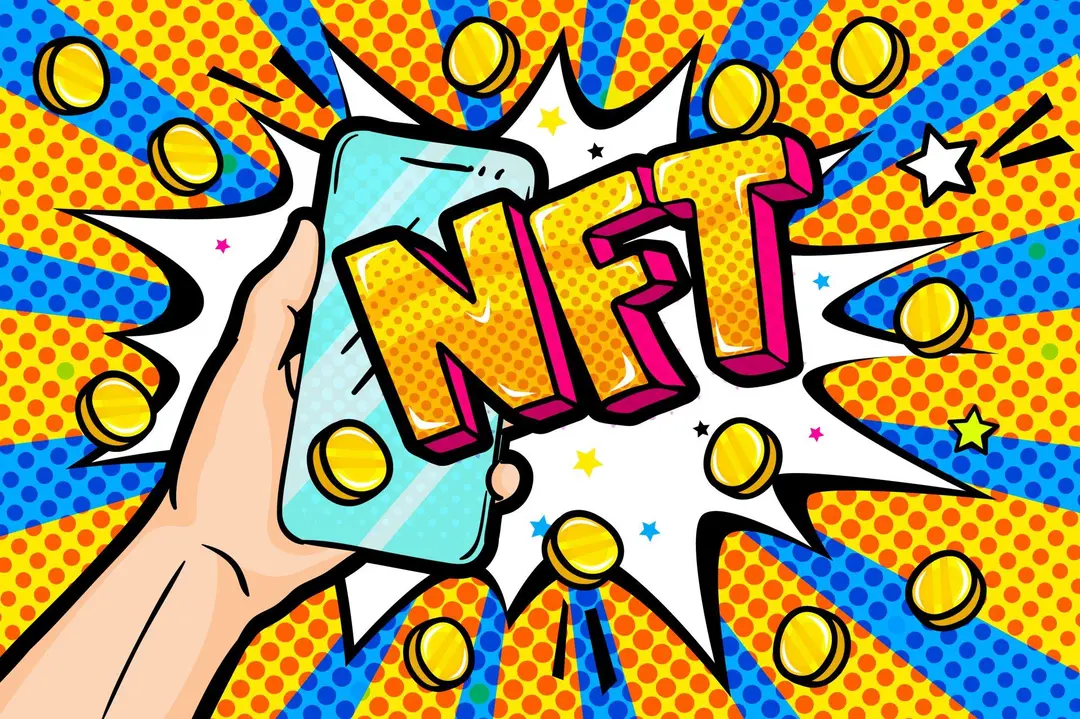A non-fungible token (NFT) is a unique unit of data that’s stored on a block chain. Ownership of this data unit can be bought and sold. NFTs are cryptographic assets, like cryptocurrency, that live on the blockchain, which acts like a digital ledger. Unlike cryptocurrencies, which are fungible, NFTs cannot be traded at equivalency since they’re not identical.
Fungible essentially means units of cryptocurrency, like a Bitcoin or Ethereum, are identical to one another, similar to currencies or precious metals. The uniformity of fungible assets allows them to be used as currency in commercial transactions. NFTs are crypto assets that aren’t interchangeable since each has its own valuation.
Technically, NFTs hold the potential to facilitate real-world physical asset transactions through blockchain technologies. However, this practical use of NFTs isn’t generally what people think of when they read the acronym or hear it discussed.
Most of the NFTs that are heatedly discussed in the media and online take the form of digital artwork or purely digital assets. For example, an NFT for the first tweet sold on March 22, 2021 for $2.9 million.
What Does It Mean to Own an NFT?
In most cases, NFT ownership confers no actual ownership rights to the digital asset (oftentimes an image), other than bragging rights. The owner of the first tweet can tell people they own the first tweet and can potentially find someone else to purchase it for more than what they paid, but they have no actual control over that tweet. The NFT owner isn’t entitled to have the tweet deleted or stop people from sharing the tweet or screenshotting it. An NFT is essentially a means of authentication, which is why it holds promise as digital proof of physical asset ownership.
These digital tokens are a potential way for artists to profit off their art directly through the sale of an NFT, but the NFT purchasers don’t technically own the art itself. They just own the data on a blockchain that recorded their purchase and ownership of the token correlated with the art. The artist would need to sign over the copyright ownership to the purchaser of the NFT for the holding of the NFT to grant those benefits.
There have been scenarios where license terms have been embedded into sold NFTs, but most digital image NFTs sold to traders bestow no actual ownership rights of the art itself.
Speculative Investments
Most NFTs represent classic speculative investments. Purchasers are simply etching their name into a blockchain as an owner of a particular digital asset. Their hope is that their unit of data will be attractive enough to other NFT investors that it will appreciate and eventually sell for a profit.
NFTs like these are not tied to any physical asset or a share of a tangible company that makes products or provides services. Its value is entirely derived from the NFT market and what other NFT buyers are willing to pay for it, not any utility it provides or revenue it produces.
That doesn’t necessarily mean NFTs are worthless. There are markets for NFTs, and thousands of non-fungible tokens are traded daily.
And not all NFTs are thumbnails of monkeys. For example, there are industries like real estate and financing where ownership of physical assets or debt can be tokenized and traded. Proponents argue that tying ownership of real assets to NFTs can greatly simplify the purchase and sale of property and improve transparency.
Are NFTs Right for Your Investment Portfolio?
Investors should always do their own research and strive to make informed decisions about what they’re purchasing. It’s likely in your best interest to read up on cryptographic assets before risking money on a speculative crypto investment.
You can also call (623) 974-0300 to speak with an investment management expert at Fullerton Financial Planning to learn about investments that can grow your nest egg and protect your retirement savings.






